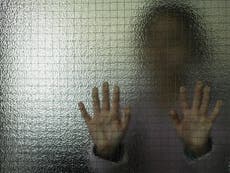Looking for authentic black voices and storylines? Maybe you should pay attention to Nollywood
It’s not that white Britain hates black culture. Black stories like Django Unchained have been box office hits. Unfortunately, these tales (and many like it) are told by white directors, and often told problematically

As a kid, I had 3 major peeves:
1. The unexplained disappearance of Sunny Delight
2. “It’ll be good for you!” family bike rides
3. Low budget, self-styled Nigerian films
Number three spurred a particularly bad rash. As a young black girl, I’d frequently visit a Nigerian hairdresser's to have my hair plaited. Wedged between a thick pair of thighs, I’d routinely wince at eight–hour, back-to-back Nollywood marathons (plus the tight, alopecia-inducing braids).
For those who don’t know, Nollywood is Nigeria’s film industry. Recently, the term has also been used to cover Nigerian diaspora films affiliated with the home nation. Nollywood is the second-largest film industry in the world. In terms of output, it trumps the formidable Hollywood, and bows only to India’s Bollywood. What I’m saying is, Nigeria’s movie trade is massive.
Why then, aren’t we Brits watching? Nollywood is popular among African-Britons and Africans back home, but ask your non-African friends about the industry and you’ll probably draw a blank stare. “Nollywhat?!”
Perhaps Britain is like the tender-headed, 10-year old me. In the noughties, I dismissed Nollywood as low-budget, low-quality nonsense. I wasn’t totally wrong – most Nollywood films were shot in private homes, released on video CDs and peddled at markets. They were churned out cheaply and cheerfully (in 2004, Nollywood produced 2,500 films).
Nollywood’s questionable quality used to overshadow its cultural impact; at least, that’s what I thought. Nowadays, I take a different stance. Nollywood still produces many quick, cheap films (see the delicately named Obama Babes and I Want Your Wife). However, Nigerian filmmakers are now reaching out to a wider audience, which *klaxon* includes us.
A recent trend means some Nigerian auteurs are attending Western film schools (such as Newton Aduaka, the first black film-maker to gain a national independent film release in Britain). Some others (take filmmaker/former BBC journalist Zina Saro-Wiwa) are returning to Nigeria from the diaspora in order to reignite Nollywood.
What began as a cash-strapped guerrilla industry is now a cultural and financial goldmine. Yet, we Brits aren’t digging in. When Star Wars Episode VII promises unthinkable epicness and Marvel drops a cushty five-year plan, why should we?
Well, consider this: outside of Britain, we look to one country for most of our filmspiration - America. Sure, we love Amelie, Amour, Mad Max, etc. However, most popular foreign films are, like Hollywood, produced by majority white cultures. They’re films by and about people who look like white Britain.
It’s not that white Britain hates black culture. Black stories like Django Unchained have been box office hits. Unfortunately, these tales (and many like it) are told by white directors, and often told problematically.
With this inaccuracy in mind, our Hollywood habit seems illogical. Instead of tapping in to a lucrative industry that offers authentic, diverse black experiences, we opt for films like The Help, every time.
We swallow the White Protagonist Saves Black Folk trope, when with a jaunt to iTunes we can watch Black People Save Themselves. It’s fairly easy to source Ijé: The Journey, an internationally acclaimed, thrillingly perceptive drama. Directed, produced and written by Nigerian Chineze Anyaene, Ijé has received accolades at the Swansea Bay Film Festival, Boston International Film Festival and more.
Ijé is an unsparing, outsider’s portrayal of America’s social prejudices, one that Hollywood films cannot construct themselves. Anyaene nails social comedy too; my favourite exchange involves the protagonist Chioma investigating an affluent white American home. A petite homeowner swings open the door and chirps, “We already give to the Jolie-Pitt fund every year…thank you though!”
Two years later, filmmaker Sunny King brought Nigeria to our doors. His short film Unspoken examines a barely unexplored British problem – the taboo of homosexuality in our Nigerian communities. Unspoken won Best Film in the LGBT Film category at the London Independent Film Festival, and it’s easy to see why.
King demonstrates how in distant continent, stringent “anti-gay” laws affect the lives of our own citizens. From Unspoken’s release (2012) to the present day, protests against Nigeria’s gay marriage bill have been taking place in our capital. While anti-gay laws and the persecution of LGBT+ Nigerians continues to exist, Unspoken remains incredibly relevant to UK culture.
With limited goat burglaries, growing funding and international influences, Nollywood is rapidly finding crossover audiences. Anyaene, King and Afolayan are just three auteurs marking Nigeria’s transition into an established film industry. Nollywood is stretching far beyond Nigeria, beyond the Nigerian diaspora, and into fringes of mainstream British interest. It has the potential to reinvent popular British culture - so why aren’t more of us tuning in?




Join our commenting forum
Join thought-provoking conversations, follow other Independent readers and see their replies